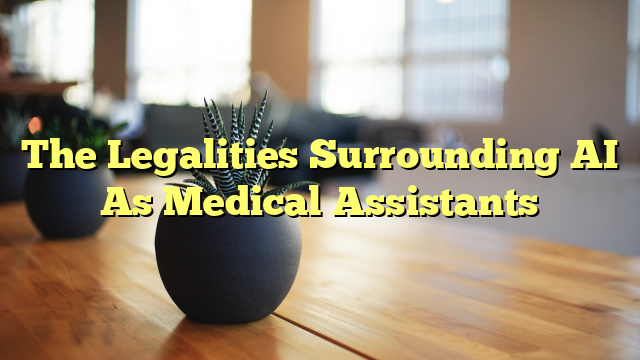Table of Contents
Legal Issues Surrounding AI
Artificial Intelligence (AI) has become increasingly prevalent in various industries, including healthcare. However, the use of AI as medical assistants raises several legal concerns. One major issue is liability. If an AI system makes a mistake or provides incorrect information, who is responsible? Is it the developer, the healthcare provider, or the AI system itself?
Another legal issue is privacy and data protection. AI systems collect and analyze large amounts of patient data, which raises concerns about how this data is stored, accessed, and protected. Additionally, there may be legal implications regarding the use of patient data for training AI algorithms.
Intellectual property is also a legal consideration. AI systems rely on algorithms and software, which may be protected by patents or copyrights. Determining ownership and licensing rights can be complex, especially when multiple parties are involved in the development and implementation of AI systems.
Legal Issues Related to Using AI in Healthcare
In addition to the general legal concerns surrounding AI, there are specific legal issues related to using AI in healthcare. One key issue is medical malpractice. If an AI system fails to diagnose or treat a patient correctly, it could potentially result in harm or even death. Determining liability in such cases can be challenging, as it may involve complex legal and medical considerations.
Another legal issue is regulatory compliance. Healthcare providers must adhere to various laws and regulations, such as HIPAA (Health Insurance Portability and Accountability Act), when handling patient data. AI systems must also comply with these regulations, which can be challenging given the complexity of AI algorithms and the potential for privacy breaches.
Furthermore, there may be legal issues related to informed consent. Patients have the right to be informed about the use of AI systems in their healthcare and to provide consent. However, explaining the intricacies of AI to patients and obtaining their informed consent can be difficult, especially when AI systems are integrated into routine medical procedures.
Ethical Issues Surrounding AI
Alongside the legal concerns, there are ethical issues surrounding the use of AI as medical assistants. One major ethical consideration is the potential for bias in AI algorithms. If AI systems are trained on biased or incomplete data, they may perpetuate existing inequalities in healthcare, leading to disparities in diagnosis and treatment.
Another ethical issue is the impact on healthcare professionals. AI systems have the potential to automate certain tasks traditionally performed by healthcare professionals, raising concerns about job displacement and the erosion of human expertise and judgment.
Additionally, there are ethical questions regarding transparency and accountability. AI systems often operate as black boxes, making it difficult to understand how they arrive at their decisions. This lack of transparency can undermine trust in AI systems and raise concerns about their accountability for errors or biases.
Regulation of AI in Healthcare
The regulation of AI in healthcare is a complex and evolving area. Currently, there is no specific regulatory body solely dedicated to overseeing AI in healthcare. However, existing regulatory frameworks, such as the FDA (Food and Drug Administration) in the United States, may apply to AI systems used in medical settings.
Regulations may focus on aspects such as safety, efficacy, and data privacy. As AI continues to advance and become more integrated into healthcare, there is a growing need for comprehensive and specific regulations to address the unique challenges posed by AI systems.
Conclusion
The use of AI as medical assistants presents various legal and ethical challenges. Addressing these issues is crucial to ensure patient safety, protect privacy, and maintain trust in AI systems. As AI technology continues to advance, it is essential for regulators, healthcare providers, and developers to

